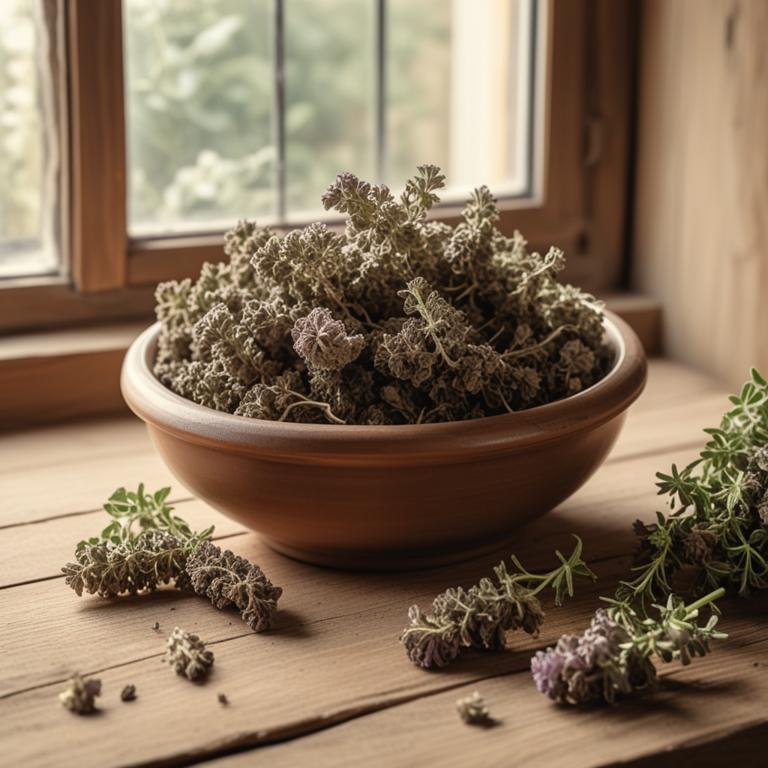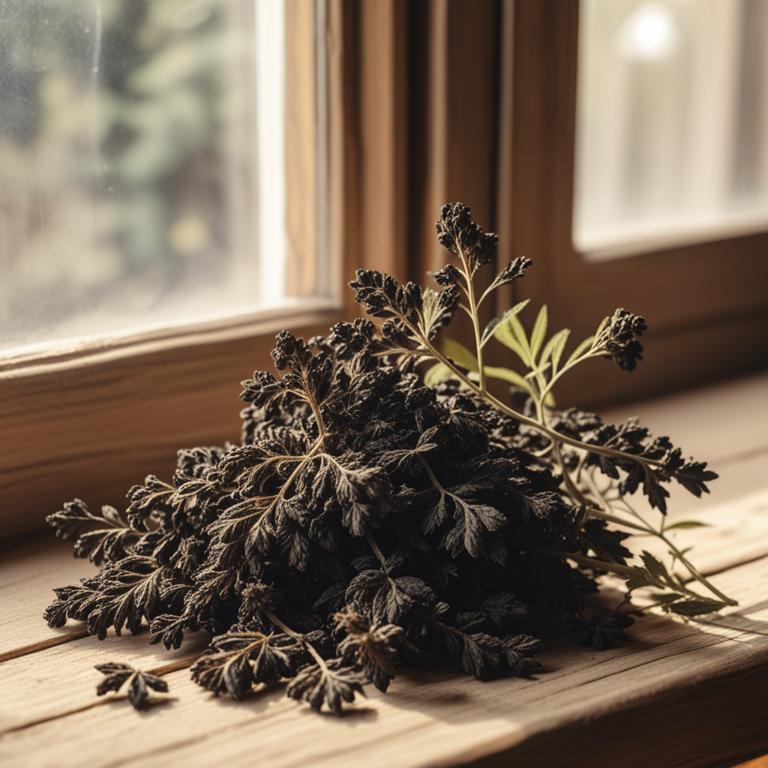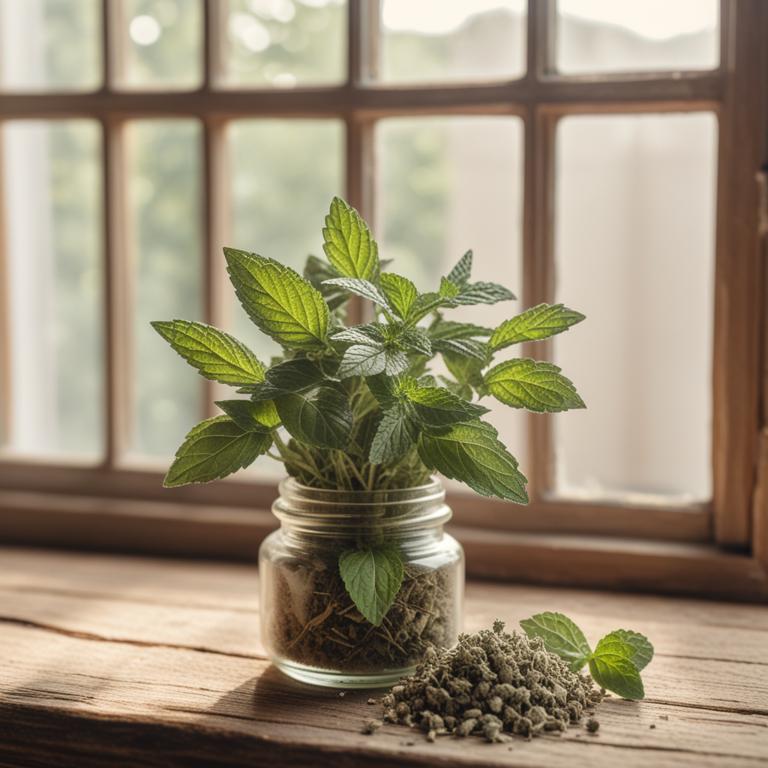Updated: Dec 1, 2024
Sore Throat Causes, Herbal Cures, and Medicinal Plant Remedies
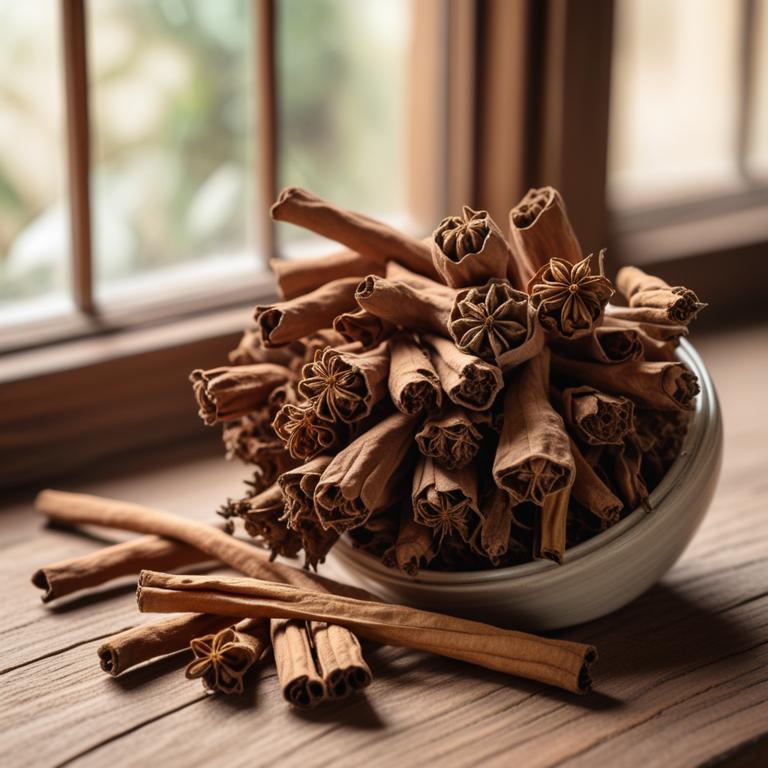
A sore throat can be a real nuisance, making it painful to talk, eat, and even swallow.
It's a common symptom of many illnesses, including colds and flu, and can also be caused by overusing your voice, smoking, or even acid reflux. When your throat is sore, it can be hard to concentrate on work or school, and even simple tasks like talking to friends or family can become a chore. Herbs have been used for centuries to soothe a sore throat, and some are particularly effective. For example, slippery elm is a natural demulcent that forms a protective barrier on the mucous membranes, reducing inflammation and discomfort. Ginger is another popular herb, which has anti-inflammatory properties that can help ease pain and reduce swelling.
And then there's licorice root, which has antiviral properties that can help combat underlying infections. To use these herbs, you can make teas, which are a soothing and convenient way to get relief from a sore throat. Simply steep the herbs in hot water, and then drink the tea several times a day. You can also add honey and lemon to sweeten and add flavor. Another option is to make a throat spray, by infusing the herbs in a liquid and then straining and bottling it.
This can be a great way to get a quick dose of soothing relief when you need it most.
Table of Contents
What are the factors leading to sore throat?
The main causes of sore throat are various and can be caused by both viral and bacterial infections.
A viral infection is one of the most common causes, where a virus attacks the throat, causing inflammation and irritation. This can lead to symptoms such as a scratchy or sore throat, difficulty swallowing, and sometimes a cough or runny nose. Bacterial infections, on the other hand, are typically caused by streptococcal bacteria, which can cause a severe sore throat and fever. Tonsillitis is another common cause of sore throat, where the tonsils become inflamed and infected, often due to a viral or bacterial infection.
When the tonsils become infected, it can cause pain and swelling in the throat, making it difficult to swallow. Mononucleosis, also known as glandular fever, is a viral infection that can cause a sore throat, fever, and swollen lymph nodes in the neck. Laryngitis is another cause of sore throat, where the vocal cords become inflamed, often due to overuse or strain on the voice. This can cause a hoarse or raspy voice, as well as a sore throat. Strep throat, caused by the Group A streptococcal bacteria, is a bacterial infection that can cause a severe sore throat, fever, and swollen lymph nodes in the neck.
It's usually treated with antibiotics to prevent complications.
What are the advantages of using herbal remedies for a sore throat?
When you have a sore throat, using herbs can be a big help.
They can calm down the pain and inflammation, making it easier to swallow and talk. Some herbs have antimicrobial properties, which means they can kill the germs that are causing the infection. This can help your body fight the illness faster and get rid of the symptoms.
Herbs can also reduce swelling and soothe the mucous membranes, making it feel less scratchy and uncomfortable. Many people find that using herbs helps them get better faster and feel more comfortable while they're recovering. By using herbs, you can also avoid some of the side effects that come with over-the-counter medications, like drowsiness or stomach upset.
Additionally, herbs can be used in teas, soups, or as a gargle, making it easy to incorporate them into your daily routine.
What are the main medicinal herbs to relieve sore throat?

Herbs have been used for centuries to soothe a sore throat, and for good reason.
Zingiber officinale, or ginger, has anti-inflammatory properties that help reduce swelling and pain in the throat. Its warming properties also help to loosen mucus and promote healing. Glycyrrhiza glabra, or licorice root, has been shown to reduce inflammation and kill bacteria that can cause infections.
Echinacea purpurea is a natural immune booster, helping to fight off infections that can cause sore throats. Thymus vulgaris, or thyme, contains compounds that have antimicrobial properties, making it effective against bacteria and viruses. Mentha x piperita, or peppermint, has a cooling effect that helps to numb the pain and reduce inflammation.
These herbs can be consumed in tea form, added to a warm bath, or used in a homemade remedy to provide quick relief from a sore throat.
Which herbal preparations are commonly used for sore throat?
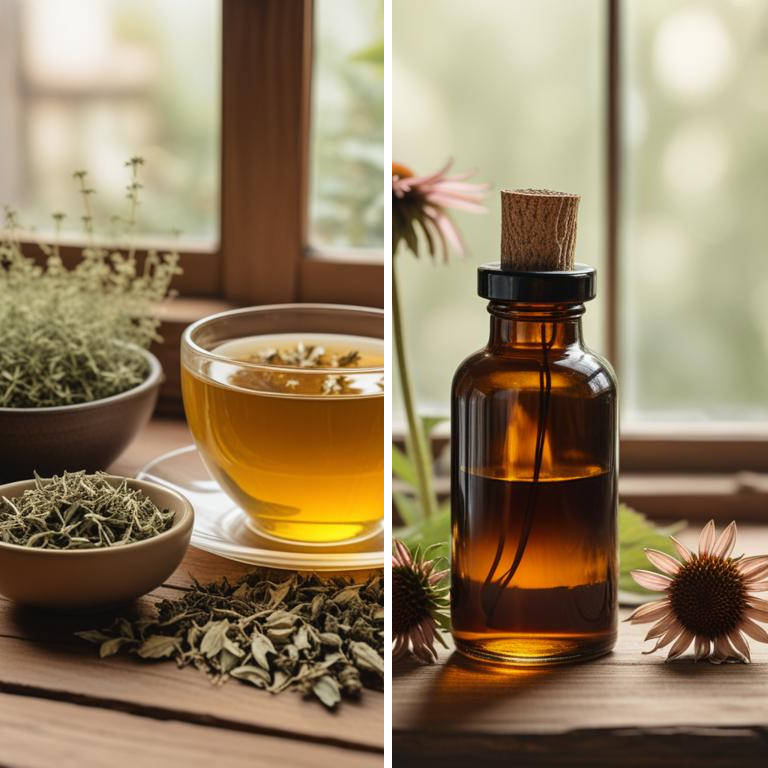
When you have a sore throat, herbal preparations can be really helpful.
One way to soothe a sore throat is with Throat Tea. This is a special kind of tea made from herbs like slippery elm, marshmallow, and licorice root. These herbs have anti-inflammatory properties that can help calm the throat and reduce swelling. When you drink Throat Tea, the soothing properties of the herbs can help ease the pain and discomfort. Another way to use herbal preparations for a sore throat is with Lozenges. These are small tablets that dissolve in your mouth and release the healing properties of the herbs. Lozenges can be made from herbs like eucalyptus and menthol, which have a cooling effect on the throat. This can help numb the pain and reduce inflammation. A Decoction is another type of herbal preparation that can be used to soothe a sore throat. This is a liquid solution made from herbs that have been boiled in water.
Decoctions can be made from herbs like sage and thyme, which have antibacterial properties that can help fight off infections. When you drink a Decoction, the healing properties of the herbs can help reduce inflammation and ease the pain. Tinctures are another type of herbal preparation that can be used to soothe a sore throat. A Tincture is a liquid solution made from herbs that have been soaked in a solvent like alcohol or glycerin. Tinctures can be made from herbs like slippery elm and marshmallow, which have anti-inflammatory properties that can help calm the throat. When you take a Tincture, the healing properties of the herbs can be absorbed quickly into the body. Finally, a Gargle can be a quick and easy way to use herbal preparations to soothe a sore throat. This involves swishing a liquid solution made from herbs around your mouth and throat before spitting it out. Gargles can be made from herbs like salt and water, or from herbs like eucalyptus and menthol. When you gargle, the healing properties of the herbs can help reduce inflammation and ease the pain.
This can be especially helpful if you're feeling a sore throat coming on.
Additional Resources:
Which herbs are not safe for individuals with sore throat?
If you have a sore throat, it's best to avoid using herbs that can irritate the throat or make the symptoms worse.
For example, if you try to soothe your sore throat with rosemary (Rosmarinus officinalis), it might not be the best idea. Rosemary has a strong, pungent flavor and aroma that can be quite harsh on the throat. It's also a natural decongestant, but it can dry out the mucus in your throat, making it harder to swallow. Sassafras (Sassafras albidum) is another herb to approach with caution.
Its essential oils can be quite potent and might irritate a sore throat even more. While valerian root (Valeriana officinalis) is often used to calm the nervous system, its active compounds can also have a drying effect on the throat, which might not be what you need when you're feeling sore. Hyoscyamus niger, or henbane, is a herb that should be handled with care. Its alkaloids can have a sedative effect, but they can also be toxic in large amounts, and a sore throat is not the right time to experiment with new herbs.
Astragalus (Astragalus membranaceus) is sometimes used to boost the immune system, but its drying properties can be a problem if you already have a sore throat.
FAQ
Are there any specific herbs that can prevent sore throat?
Ginger and slippery elm are often used to help soothe a sore throat.
Ginger's anti-inflammatory properties can reduce swelling and ease pain, while slippery elm forms a protective barrier on the mucous membranes to calm irritation.
These herbs are commonly found in teas and supplements, and can be a natural way to alleviate a sore throat.
Is it safe to use herbal remedies for sore throat during pregnancy?
When you're pregnant and have a sore throat, some herbal remedies might sound appealing.
However, it's best to check the ingredients and amounts of these remedies. Some herbs, like slippery elm and marshmallow root, can help soothe a sore throat.
But be cautious with others, like sage and thyme, which can stimulate the uterus and affect the baby's growth.
Are there any herbs that can reduce the frequency of sore throat?
Ginger and sage are herbs that may help reduce the frequency of sore throats.
Ginger has anti-inflammatory properties that can soothe irritated tissues, while sage has antimicrobial properties that can fight off infections that can cause sore throats.
Drinking tea made from these herbs may provide some relief.
Related Articles
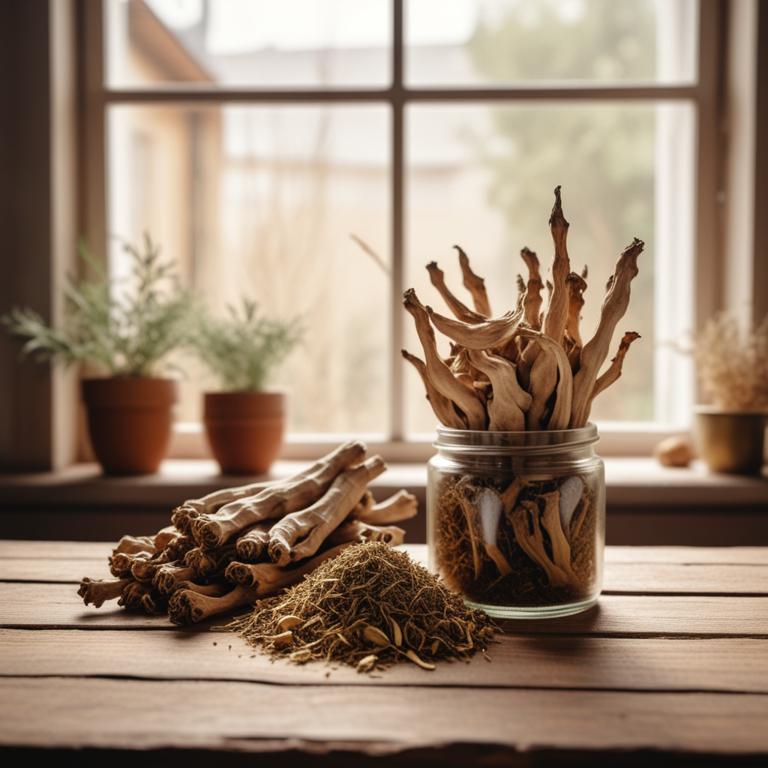
Understanding Chronic Bronchitis: Causes, Medicinal Herbs, and Herbal Remedies
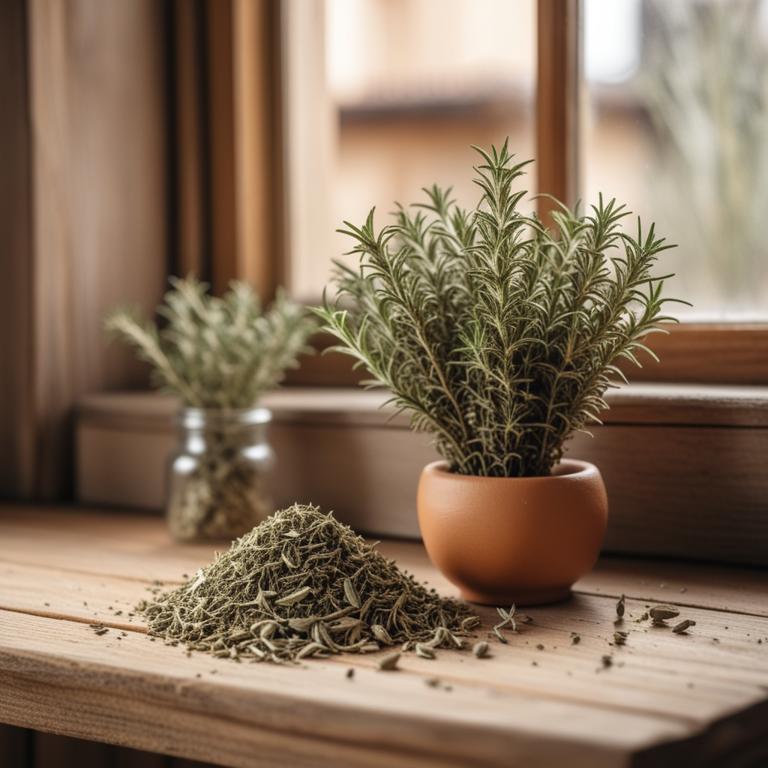
Causes, Medicinal Herbs, and Herbal Remedies for Shortness of Breath
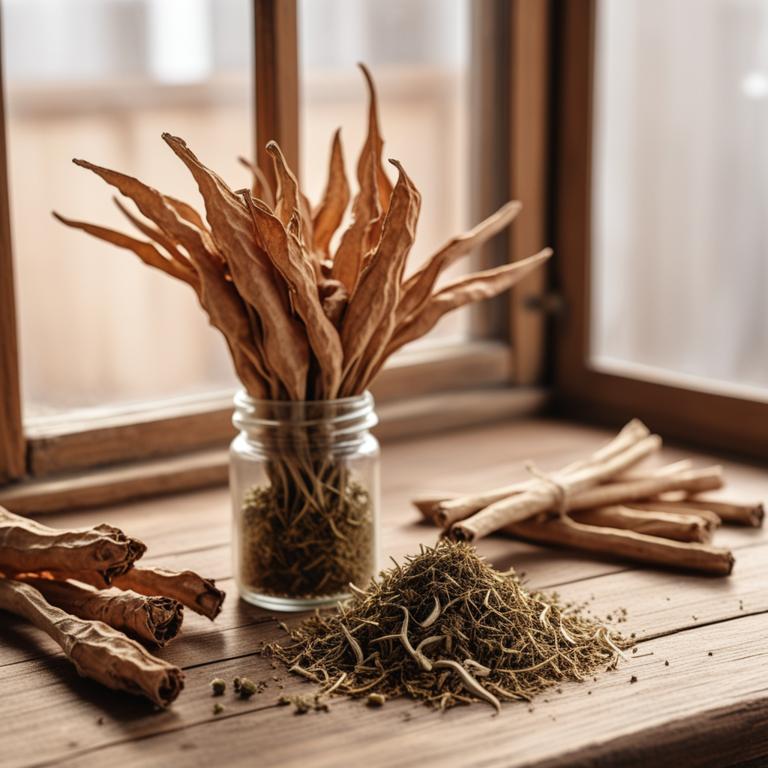
Cough Causes and Natural Cures: The Power of Herbal Preparations

Understanding and Managing Fungal Infection with Medicinal Herbs and Preparations

The Dry Nose Dilemma: Causes, Herbal Preparations, and More
